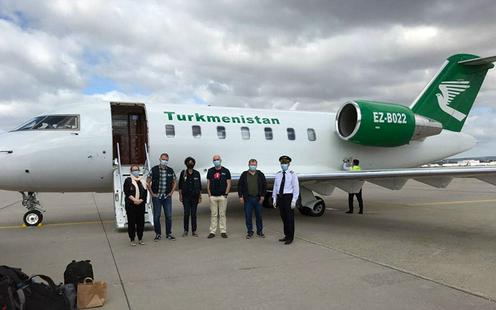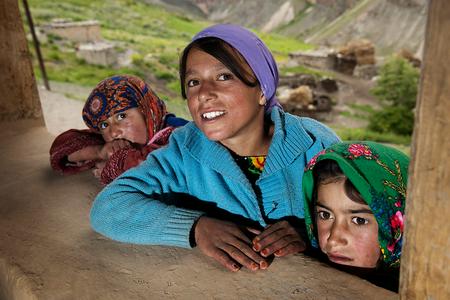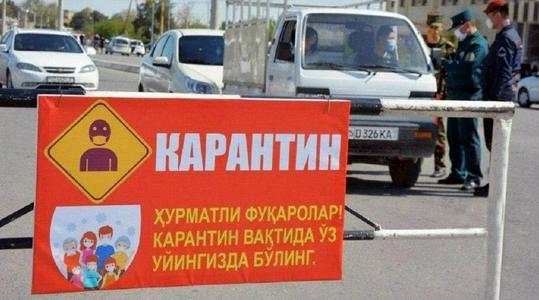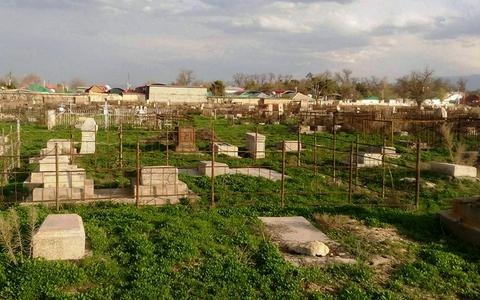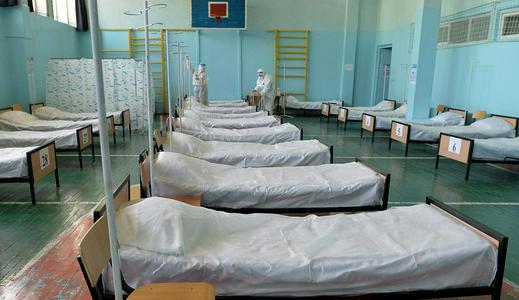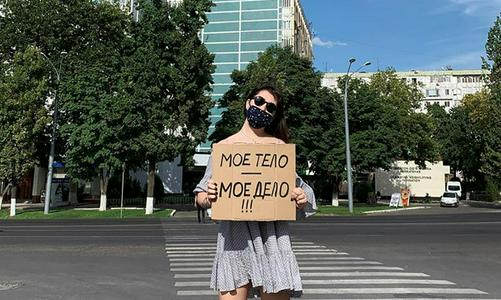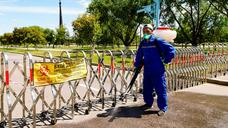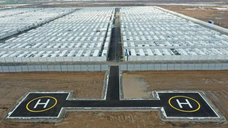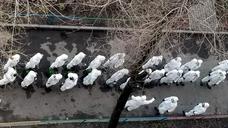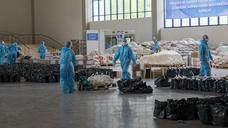Just hours after the arrival of a WHO mission sent to Turkmenistan to check on the coronavirus situation there – which has already been delayed by the Turkmen authorities for more than two months – state news agency TDX has reported (in Russian) that the country’s president Gurbanguly Berdymukhamedov has gone on holiday. The day before this, Berdymukhamedov sent the entire government off on a month-long break.
The Turkmen government still insists that it is one of a handful of countries (mostly isolated island states, plus North Korea) to remain free from COVID-19. Unconfirmed reports of coronavirus patients in the country, however, have been circulating for months, including claims of a rise in mortalities. In April, the WHO expressed its intention to send missions to both Turkmenistan and Tajikistan, which also claimed to be free of the virus at that time. The Tajik government then declared its first cases of COVID-19 the day before the WHO team’s arrival at the end of that month. The Turkmen authorities, in contrast, have dragged out negotiations over the proposed visit for a full two months amid reports that they are working to present a false façade of the country’s preparedness to visiting experts. On Sunday, WHO mission head Dr Catherine Smallwood diplomatically ascribed the delay to continued discussions over “transport options”.
As Smallwood explained, the WHO’s five-man team of experts has been dispatched to Turkmenistan in order to work together with the country’s officials and healthcare experts to assess COVID-19 risks and to develop “response mechanisms that would be required to tackle COVID-19”. She described the basic aim of mission as “preparing for and getting ready to manage COVID-19’s emergence and spread”.
In the course of their ten-day visit, the WHO experts are to visit a number of medical organisations, public healthcare centres, laboratories and other facilities on the national, regional and city levels. The team will also inspect some of the country’s points of entry. Smallwood was clear to point out that around 70 such missions have been sent to European Region countries in the past few months.
Meanwhile, RFE/RL’s Turkmen service Azatlyk has reported today that patients showing coronavirus symptoms continue to be admitted to hospitals around the country, and that many of them have had confirmed COVID-19 diagnoses.
“27 patients arrived at the cardiology centre at the junction of Niyazov and Gorogly streets yesterday. Six of them have had coronavirus diagnoses confirmed, two have died, and the rest are waiting for their test results,” a source in the healthcare centre told the outlet’s correspondent on condition of anonymity.
Azatlyk’s correspondent stated that a number of hospitals, plus several office buildings, in the Turkmen capital Ashgabat have been refitted in order to receive COVID-19 patients “since there was not enough space for these patients in the infectious diseases hospital”.
The outlet’s correspondents and sources, however, claim that none of these patients will be seen by the arriving WHO experts. The authorities have allegedly set up other sites, empty of COVID-19 patients, as a façade for the incoming mission.
The situation is said to be the same in the country’s Lebap region, with reports of increasing coronavirus cases and a number of deaths. Patients have been moved to alternative facilities ahead of the WHO inspection. “They are hiding patients. It’s a total charade. At the very least they say that it’s pneumonia. You should see what’s going on in the intensive care section of the city hospital. The patients are there and the infected medics have been placed on the second floor,” Azatlyk’s source in Turkmenabad said.
This was likely not what the WHO’s Dr. Smallwood had in mind when she praised the Turkmen authorities ahead of her visit for their “reorganization of facilities and staff at all levels of the health system”.
Azatlyk also reports that the day before the WHO mission’s arrival, the Turkmen authorities introduced unprecedented anti-epidemiological measures in line with WHO guidance. Previously, the Turkmen authorities have not only abstained from recommending the wearing of face masks, but even banned the public from wearing them. Now public transport workers, market workers and other public-facing employees are required to wear masks and mask wearing is recommended for others too in public places. Pro-government news website Orient, however, has denied that this is due to the presence of the coronavirus: “Having seen Ashgabat taxi drivers in protective masks, some citizens have drawn the conclusion that the coronavirus is among us.” This is not the case, the outlet writes, before offering an alternative explanation: “In accordance with recommendations from the Ministry of Healthcare and the Medical Industry, in order to reduce the naturally exogenous impact of a possible change in the composition of the air and elevated levels of certain substances in it, healthcare workers, vendors, public transport workers and other service sector employees are required to wear medical face masks – in order to protect their upper respiratory tracts. The same recommendations have been given to people with allergies and chronic illnesses.”
Orient does not explain what exactly this change in air composition is, but Azatlyk quotes “semi-official” outlet Turkmenportal as clarifying that air currents that have just entered Turkmenistan are currently causing problems with wind-borne dust in Ashgabat and other regions of the country.
Sceptical observers may have doubts about the coincidental timing of this (otherwise unobservable) freak weather event, but Turkmenistan certainly seems confident of throwing dust in the eyes of the WHO mission.
